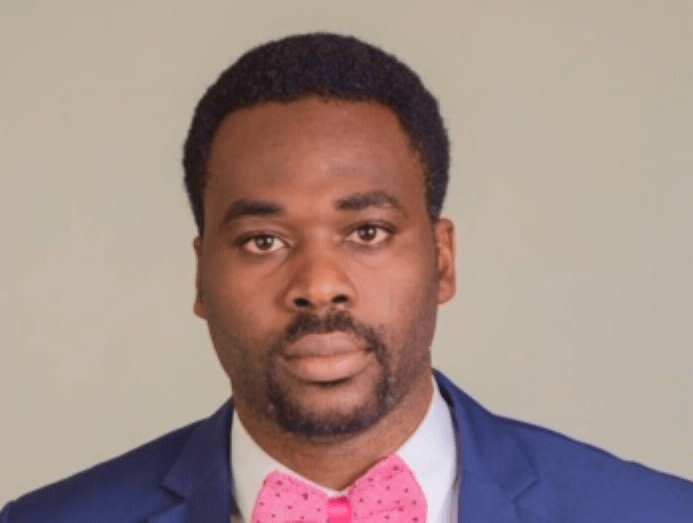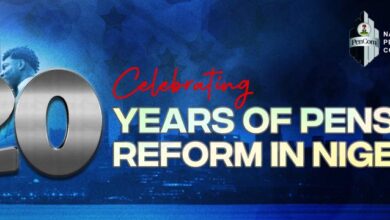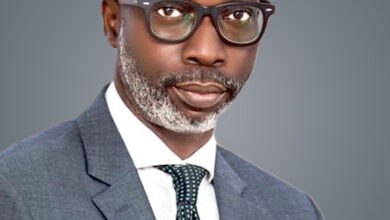How Pension Reform Act 2004 Revolutionize Pension Administration in Nigeria –PenOp CEO

Mr. Aguda Oguche, PenOp CEO
In a bid to educate the public on how pension fund is being invested and the need for them to always check their Retired Saving Account (RSA) balance with their Pension Fund Administrators (PFAs) as well as contributors and fund managers engagement, the Managing Director/Chief Executive Officer, Pension Fund Operators Association of Nigeria (PenOp), Mr. Aguda Oguche, speaks extensively on this recently during Inspen Media Pension Matters on Lagos Talks 91.3 FM station. EDET UDOH who monitored the programme reports.
The fundamental questions people have been asking concerning their pension funds have been how the fund is being used or invested by those saddled with the responsibility of managing the fund. They want to know how the fund is being invested and how much is accrued to them every month.
This topic was considered in order to answer these questions, correct the wrong impression some people are having about how the Pension fund is being managed or invested. Some people believe the fund is idle, while some believe the fund is being used by the government. Some have complained that they have not been getting anything additional since they started serving.
PenOp boss, Mr. Oguche, while responding to these questions started by giving the number of registered Pension Fund Administrator operating in the Nigerian Pension Industry; Transfer window opportunity; what the law says concerning the percentage of contribution by both employers and employees; how the fund is invested, the need for contributors to engage their PFAs, just as he assured the public that the pension fund is invested under a specified guideline provided by the industry’s regulator, the National Pension Commission (PenCom); among other issues.
Number of PFAs
Speaking on how pension fund is being managed and the inherent benefits/profits accruable to contributors, he said: “The first thing we need to know is the number of Pension Fund Administrators in Nigeria. We have 22 dully registered Pension Fund Administrators. Contributors are at liberty to ask any of the 22 administrators to manage their retirement saving account (RSA). It is stipulated by law that at the end of the month, your employer will deduct eight per cent from your salary and add with the company’s 10 per cent and then remit to your choice pension administrator.
“When your money gets to them, the 22 of them will invest the money within a specified guideline provided by the regulator, the National Pension Commission (PenCom). As your money is being invested, your Administrator will avail you with your statement of account either monthly or quarterly, for you to know how your fund is being invested and how much is being added to your servings. Those 22 Pension Administrators are mandated by law to invest the fund on your behalf.
How Pension Funds is invested
On whether the pension fund is idle or not, Oguche said “there is no idle fund because Pension Administrators live on returns. What I mean is that money that is not put to work/invested does not generate returns. So if you get money and you just put it in a bank account without investing it, it doesn’t produce returns and when pension contributors come at the end of ten years, twenty years, thirty years and there is no returns that what you put you give him/her back, there is going to be the problem.
“Pension Fund Administrators ensure that when they get the money, they invest it as much as possible. But then they also try to do some analyses because, within any pension fund, there are some people who just started work today, you are 25 you are just starting work then there are some people who are 65 and are retiring, Pension Administrators will need money to pay those who are retiring so apart from investing the fund in Treasury Bills, Government Bonds and other instruments, they also invest some portion of the fund in liquid or near cash instrument that they can easily sell so that when someone says I am retiring today or am retiring tomorrow because Pension Administrators have to pay them, they (administrators) will go and sell the near-cash items and pay them. So it’s a balance they must keep between liquidity and returns. All funds managers must do this and that is what they do on a daily basis.
Pension Fund Assets Under Management
On the total amount of Pension Fund Assets under management, PenOp boss said, “The Pension Fund Assets under management as of April this year based on PenCom report is about N12.4 trillion. This money has to do with the money that has been contributed by private-sector workers and government staff including the accrued returns for all contributors.
Need for Contributors/PFAs Relationship
Speaking on how contributors should relate with their PFAs as well as the transfer window, Oguche stated there is need for the PenCom to do more in this area to educate the contributors on the need for them to always feel free to contact their PFAs whenever they have issues to clarify and promised to take that up.
Taking advantage of Transfer Window
Speaking on transfer window he said, “I think because it is a fairly new and recent phenomenon so the Pension Act which created the pension industry we have now is just about 17 years so it’s not normal as the banking account. In a banking account, you might need to withdraw every day, you might need to transfer money but with a Pension account, most people believe that it’s only when they retire when they are fifty years that they need to engage their PFAs, that is not so. If you get your account on a daily basis or your text messages; if you get your statement and you are not satisfied, you can send a mail to your Pension Administrator, you can call them, you can text them and say: I want to understand this. I want to understand that.
So there is a need for constant engagement and like what has happened, if you don’t get that engagement, if you don’t get that responsiveness, you can now decide to transfer to another pension administrator that you think might give you a better service and then you also need to be engaging your returns. So there is a need for a bid of financial literacy that we need to get, so people need to see if my pension is returning this. Why is it not returning this? And what is the other person is returning?
“If the other person is returning more, I want to move or I want to understand why. So those sorts of engagements need to happen and it comes with financial literacy. Everybody needs to do more to provide that information on their platforms and we have taken that on board but I gaze people need to see the need for engagement but maybe not as banks on a daily basis, but surely may be on monthly or quarterly. When you get your statement, you can call your PFA and tell them you just want to understand this or that and tell them where you need an explanation. I encourage people to do that. Though it is not encouraged to disclose one’s amount they can disclose returns. It’s really about financial literacy and we need to get that conversation well because it’s your retirement, it’s your money and you are the one that is going to enjoy it when you retire so as much as possible you need to be interested in what is going on there.”
Returns on Investment
On how to know how much return on investment of the entire pension portfolio of the PFA either monthly or yearly then use the statement to calculate the amount due to a contributor to be sure whether the PFA is remitting accurately or not, Oguche said:
“I think for now that responsibility is for the regulator, PenCom. It’s sort of keeping Pension Fund Administrator in check. I think if you are a bit financial savvy, you might be able to. But as of now, it’s PenCom that does that and you can’t get it so as of now you need to rely on PenCom or your PFA. But the regulation has been top-notch and oftentimes regulator is always on the side of the pension contributors in ensuring that you guys get the best so that you guys are not short-changed and that is what is happening at the moment.
How trustworthy is PenCom
On whether the regulator, PenCOm should be trusted in determining the accuracy of what people get, he explained: “One of the greatest pieces of legislation in the nation’s history is actually the pension reform Act of 2004 that really revolutionized on how the pension is done and that really goes to show what happens when the lawmakers, the government agencies, the executive work together to be able to bring something and this has been very revolutionary and since that time the pension and PenCom have really been managed by the private sector.
“It goes away from all the government stuff especially when we hear about the delay. It’s really one thing we can hold as the dividend of democracy in terms of how the pension system has evolved and there are so many benefits – the number of fund managers has grown, the professionals that pension fund has brought to the industry, the amount businesses have invested the pension funds, the government budget that has been funded by pension, the infrastructures that have been funded by the pension fund. So this has really been a big dividend of democracy. I think it’s one thing we can point to and the regulation has been great for 17 years, it’s not perfect yet but we are getting there.
Safety of Investment in Nigeria
On whether the investment in Nigeria is safe considering high interest rates, the PenOp boss stated “I know Nigerians are very sceptical about anything Nigeria, but we operate in this environment and we can’t go outside for our investment. Every day the stock market is opened, people are investing in the stock market, the bond market is opened, so many companies are investing so if you invest in a company, for instance, that company is selling goods, they are making money from those goods and they are selling in various part of the country, and they are making profits so it’s the case of their profit or turnover so it’s a whole system which is regulated by Security and Exchange Commission (SEC) Nigerian Stock Exchange (NSE).
There is a framework for investment – it’s not just investing anyhow. So when you say can we trust? We have trusted it for a while even financial market in the US in 2008 crashed and pension funds lost money offshore even Nigerian Pension was quite resilient and secured. The pension industry in Nigeria has been resilient and the investment market very resilient also so to some extent you can trust.
Trust/Management of Contributory Pension Scheme
Speaking on why people do not trust the government and its agencies, whether it is based on ignorance or lack of adequate information, Oguche said, “I think it’s a bit of both. Though we have a trust deficit in Nigeria for anything government so when they hear that government regulation, their ears go up. Like I said, one of the hallmarks of the pension system that we run in Nigeria is the management of Contributory Pensions by private companies – Private fund managers who get a license to start a business to make profits, which is regulated by PenCom. So the system whereby the government is a player as happened in some other industry doesn’t happen here. So the government doesn’t manage the pension fund, the private companies manage the pension fund and now with the transfer window, the private companies are jostling to ensure that they provide value to the retirement saving account holders.
“So if you feel that you don’t have that value from a pension manager, change that pension manager and that is what will make pension managers increase/improve their service level – you are not sending me the statement, you are not treating me well, but somebody can, and that helps to improve service level. That helps to improve product development. But the fact that the fund is managed by private companies, well regulated, who have a board, which have an investment committee with investment strategy.
Fiduciary Responsibility
“There is really a very strenuous process of investment of pension funds because pension fund managers all over the world especially in Nigeria, we understand that we have a fiduciary responsibility that means we manage the money in trust for the RSA holders (the pensioners). The money is not for the pension fund administrators but they are managing it in trust and they earn a fee for managing it. The larger the pension fund gets and if they are able to get higher returns, they get a higher fee. So the incentives are aligned to ensure that the contributor gets the best out of the deal.
Access to Pension Funds
While explaining how contributors can access their pension funds, Oguche explained: “I want people to be very objective about this issue. If you check your pension statement, and if you’ve been contributing at least five years, you will see that what you have contributed and what the pension fund is now is at least fifty per cent more. What am I saying? Every month if you are contributing at least N50,000 into your pension fund account and over five years you have been able to contribute over N5 million. What is in your RSA now is about N10 million and that is the growth meaning that Pension administrators have invested your fund and have grown it. This is because they have been able to pool the large amount together; they have been able to invest it at a higher rate.
“We always have people that want to access it. One thing I want to say is that financial literacy is very key. If you are thirty years old for instance, you can decide how much you want to have when you are fifty. Maybe when you are seventy or in twenty years. What you can do is that when you start if your employer is deducting mandatorily by law eight per cent you can say let me contribute another eight per cent. So every month when my employer compulsorily deducts eight per cent I will tell them to keep another eight per cent there. What will happen is that right now what you will get in your account will be double and you can take your eight per cent additional contribution without resorting to the law. The additional contribution is called “voluntary contribution.”
“In this case, as I said, financial literacy is key. We now have to begin to make room by saying I want to contribute more because in five years time I have a project and again it should be known that additional contribution is tax-free.





